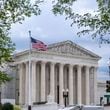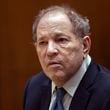On Oct. 4, 2013, Mike Minor started Game 2 of the NLDS against the Dodgers . The Atlanta Braves had lost Game 1 to Clayton Kershaw and now got the huge break of facing -- pause to allow sarcasm to seep through -- Zach Greinke. Had the Braves lost Game 2, they'd have faced elimination. Had they lost Game 2, the 96-game-winning National League East champs would essentially have been done.
Mike Minor beat Zack Greinke that night. The Braves won 4-3 to square the series and, albeit briefly, keep hope alive. (Hope was quashed in Game 4 when Fredi Gonzalez allowed Juan Uribe to face David Carpenter with the great Craig Kimbrel ready in the bullpen.) Greinke left after six innings, his team trailing 2-1. He'd yielded four hits and no walks. He was very good. Minor was better.
It started badly. Minor walked Mark Ellis, the game's second batter, and then Hanley Ramirez, who hit everything thrown his way that year, doubled to right to make it 1-nil. Sitting in the press box, a guy -- OK, this guy -- thought, "Here we go." (And not in a good way.) But Minor induced groundouts from Adrian Gonzalez and Yasiel Puig. That early run would be the only one yielded by Minor, who lasted 6 1/3 pressurized innings.
The Dodgers led off with singles in the second, third and fourth and managed a one-out double in the sixth. Minor kept dancing away. Double-play grounder in the second. Double-play grounder in the third. Strikeout of Puig in the fourth. Strikeouts of Gonzalez and Uribe in the sixth. This was tenacious October pitching from a man who, until that night, hadn't been known for his tenacity.
The Braves liked Minor enough to make him the seventh pick of the 2009 draft. He was a college pitcher (Vanderbilt), and the book says you shouldn't draft college pitchers because they've burned through too many amateur innings, but the Braves under Frank Wren didn't always read the book. (We note that Roger Clemens went to college. Stephen Strasburg, too. But he mightn't be the best example.) Minor was a polished left-hander who projected as maybe a No. 2 starter, and the Braves in 2009 were desperate for even a No. 5 starter.
By 2010, he was in the rotation, though the Braves were already beginning to wonder. Before a September game in Philadelphia -- the Braves were trying to reclaim a blown lead in the NL East, trying in vain -- manager Bobby Cox asked reporters: "Is (Minor) telling you he's tired?" (Minor had started the night before against the Phillies and lasted only 2 1/3 innings.)
He made 15 big-league starts in 2011, splitting time between the minors, no pun intended, and the big club. In 2012, he seemed one of the worst pitchers in the majors over the first two months. When June began, his ERA was 6.98. (Minor told us reporters he was making "too many non-competitive pitches.") But Fredi G., in classic Fredi G. mode, Kept Running Him Out There. This time the KRHOT tack worked.
On May 22, I'd written a little something suggesting that, if we went by xFIP -- FIP is "Fielding Independent Pitching," and "x" factors in a pitcher's home-run rate, which for Minor, who'd yielded 12, was off the chart -- Minor had actually pitched not much worse than teammate Brandon Beachy, who was leading the majors in ERA. That post is no longer available on the Internet, alas, but Ben Lindbergh, then the editor of Baseball Prospectus, preserved some of the sabermetric-bashing comments here.
Near year's end, Ben wrote to ask: Why was Minor so much better over the rest of the season? (His ERA in July was 1.98. In September it was 0.87. He'd have made a postseason start had the Braves' postseason lasted longer than the infield-fly wild card game.) Thinking cap donned, I emailed back: "I think he just figured out how to pitch."
I cringed at deploying such a cliche, but I didn't know what else to say. Minor hadn't -- like another Braves lefty, name of Glavine -- discovered a circle changeup while fooling around in the outfield. He hadn't taken to throwing underhanded. He was the same guy, pretty much, but he was making competitive pitches.
Ben wrote a very good post for B.P. -- Ben writes nothing but very good posts; he one's of the best writers on any sport -- digging into the numbers and using GIFs as before/after case studies, and after all this he still wasn't sure why Minor had gone from non-competitive to really good. His final paragraph:
"So, which was most responsible for Minor’s second-half success: more mixing of pitches, better fastball, or better luck? (Or something else entirely!) Did Minor stop serving up hits and homers because his luck turned and more balls began to find gloves? Or did he succeed because he started doing things that were more likely to lead to outs?"
Whatever the case, the Braves had reason to believe they were onto something. Sure enough, Minor took a great leap forward in 2013. He was 13-9 with a 3.21 ERA. FanGraphs assessed his WAR value at 3.5 , which is good for a starting pitcher. (Shelby Miller's WAR value for 2015 was 3.4.) Beating Greinke in the NLDS affixed the cherry atop a lovely season.
And then ... nothing. Minor had urinary tract surgery over the winter, fell behind in his conditioning and, trying to do too much too soon in spring training, hurt his shoulder. His first start came May 2. In five of his first 15 starts, he yielded 10 or more hits. He finished the season with an ERA of 4.77. He hasn't thrown another pitch for the Atlanta Braves since.
He missed last season. He had exploratory shoulder surgery in May. In July, team president John Hart was optimistic the Braves would have Minor back for 2016, but the shoulder didn't cooperate. As of midnight Wednesday, the team still hadn't seen him throw off a mound. At midnight Wednesday, they non-tendered him . At 27, he's a free agent.
Which goes, yet again, to show: Baseball is a funny ol' game, especially where arms are concerned. In 2013, you'd have sworn Minor would be a pillar of this rotation for the next five years. But shoulders are tricky -- trickier than elbows, which usually can be fixed by one round of Tommy John surgery -- and nobody knows how Minor's shoulder will be.
When word came of the non-tender, I flashed back to a conversation with Mark Bowman, the outstanding journalist who covers the Braves for MLB.com, that October night in 2013. We'd come back upstairs after the usual interviews, and I said -- again getting really profound -- "How about Mike Minor?"
Said Bowman: "He showed me something tonight."
He showed us all something that night. And then ... nothing.






